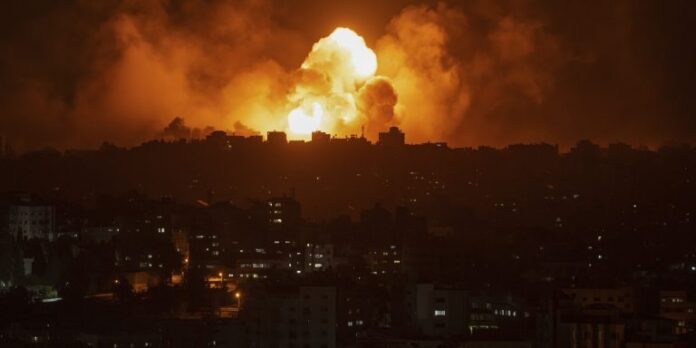Introduction to the Situation in Yemen
The ongoing conflict in Yemen, which escalated in 2014, has its roots in political, social, and economic grievances that have plagued the country for decades. The conflict initially arose from the dissatisfaction among various factions, particularly the Houthi movement, with the Yemeni government led by President Abdrabbuh Mansur Hadi. The situation deteriorated when in 2015, a Saudi-led coalition intervened in support of Hadi’s administration, framing their involvement as a means to restore legitimate governance. This intervention, however, has drawn numerous other regional and international actors into the fray, complicating the landscape significantly.
Key players in this multifaceted conflict include the Houthis, who are aligned with Iran, and the Saudi coalition, which consists of several Arab states, particularly the United Arab Emirates. Additionally, various local power brokers, extremist groups, and foreign powers, such as the United States and the United Kingdom, have influenced the dynamics on the ground. Each actor’s interests often clash, further entrenching the conflict and stoking regional tensions.
The humanitarian crisis that has resulted from this protracted conflict is severe. Yemen is currently facing one of the worst humanitarian catastrophes in the world, with millions of people suffering from famine, lack of medical care, and widespread displacement. Reports indicate that the civilian population bears the brunt of the violence, making the urgent need for compliance with international law more pressing than ever. The recent Israeli air strikes in Yemen have added a new layer of complexity, introducing concerns regarding sovereignty, international relations, and adherence to established norms of warfare.
This blog post aims to delve deeper into these developments and highlight the need for a concerted global response that respects international law and prioritizes the safety and well-being of civilians in Yemen.
Details of the Recent Air Strikes
Recently, a series of Israeli air strikes targeted strategic locations in Yemen, primarily focusing on Sana’a International Airport. These military operations are reported to have occurred in the early hours, specifically on the night of [insert date]. The strikes aimed to undermine military capabilities allegedly associated with hostile factions that pose threats to regional stability. The intense bombardment led to substantial damage to critical infrastructure, adversely affecting both civilians and essential services.
Reports indicate that these air strikes resulted in numerous casualties, with official figures estimating at least [insert number] individuals killed and many more wounded. Among the deceased were not only combatants but also civilians, including women and children who were nearby during the bombardment. This raises serious concerns regarding Israel’s compliance with international humanitarian law, which dictates the necessity of distinguishing between military objectives and civilian populations during armed conflicts.
The escalation of military actions in Yemen by Israeli forces underscores the complex dynamics of regional conflicts and raises questions about the adherence to established international laws. The situation calls for urgent attention and a reevaluation of policies, as the direct consequences of these air strikes impact not only immediate targets but also the broader humanitarian context in Yemen.
Response from the United Nations
The recent Israeli air strikes in Yemen have drawn significant attention from the international community, notably the United Nations. UN Secretary-General António Guterres has issued statements expressing his strong condemnation of the military actions, emphasizing the need for all parties to adhere strictly to international law and humanitarian principles. His response is indicative of the UN’s commitment to safeguarding peace and stability in a region that has been grappling with prolonged conflict and humanitarian crises.
In his remarks, Guterres articulated the critical importance of protecting humanitarian workers who are operating in Yemen under increasingly perilous conditions. The air strikes exacerbate an already dire humanitarian situation, placing civilians and aid workers at greater risk. The Secretary-General’s statements reiterate the UN’s position that all military actions must conform to international law, particularly concerning the protection of non-combatants and civilian infrastructure. This emphasis on compliance is essential for maintaining legitimacy in military operations and for alleviating the suffering experienced by the Yemeni population.
The implications of the Secretary-General’s condemnation extend beyond the immediate context of the strikes. They serve as a reminder that any violation of international law can have far-reaching consequences for regional stability and peace efforts. Guterres’s call to action for adherence to international norms encourages dialogue and negotiation as the preferred methods for conflict resolution. In the context of Yemen, where the situation remains volatile, the UN’s engagement is vital for fostering cooperation among international stakeholders and promoting peace initiatives that can lead to a comprehensive resolution of the conflict.
The Importance of International Law and Humanitarian Efforts
International law serves as a crucial framework that governs relationships between states, particularly during armed conflicts. The protection of civilians, the treatment of detainees, and the conduct of military operations are all covered under various international legal instruments, including the Geneva Conventions and customary international law. In the context of recent Israeli air strikes in Yemen, it is imperative for all parties involved to adhere to these legal standards to mitigate human suffering and ensure accountability.
Ongoing military actions significantly endanger humanitarian operations, as prolonged conflict can destabilize the region and create insurmountable barriers to aid delivery. Air strikes and conflicts can disrupt supply lines, limit access to essential services, and intensify the plight of vulnerable populations. As humanitarian organizations often rely on access to affected areas to provide vital assistance, their operations may be severely hindered in environments characterized by continuous violence. Therefore, the intrinsic link between the respect for international law and the efficacy of humanitarian efforts cannot be overstated.
Ceasefire agreements are urgently needed to allow humanitarian agencies to function without fear of aerial bombardment or reprisals. Establishing such agreements could facilitate the safe passage of food, medical supplies, and other essential resources to impacted civilians. Moreover, the release of detained personnel would also play a pivotal role in restoring trust and improving cooperation between parties involved in the conflict and humanitarian organizations.
To enhance humanitarian access and relief efforts in Yemen, it is crucial to prioritize compliance with international law. It is evident that respecting these legal principles is not merely a matter of moral obligation but a necessary step towards achieving lasting peace and security in the region. Without such commitments, the humanitarian crisis in Yemen will only escalate, putting countless lives at risk.


